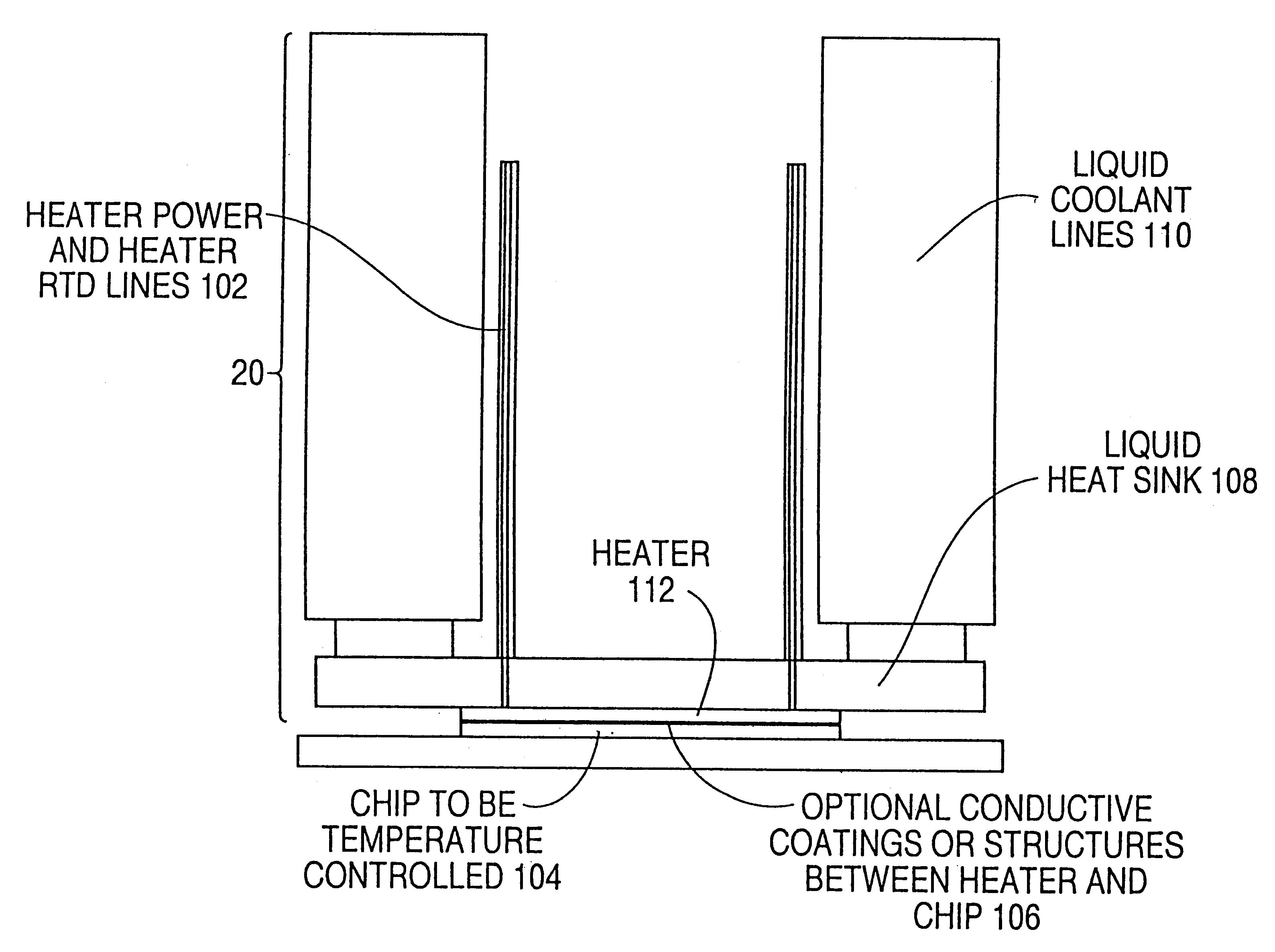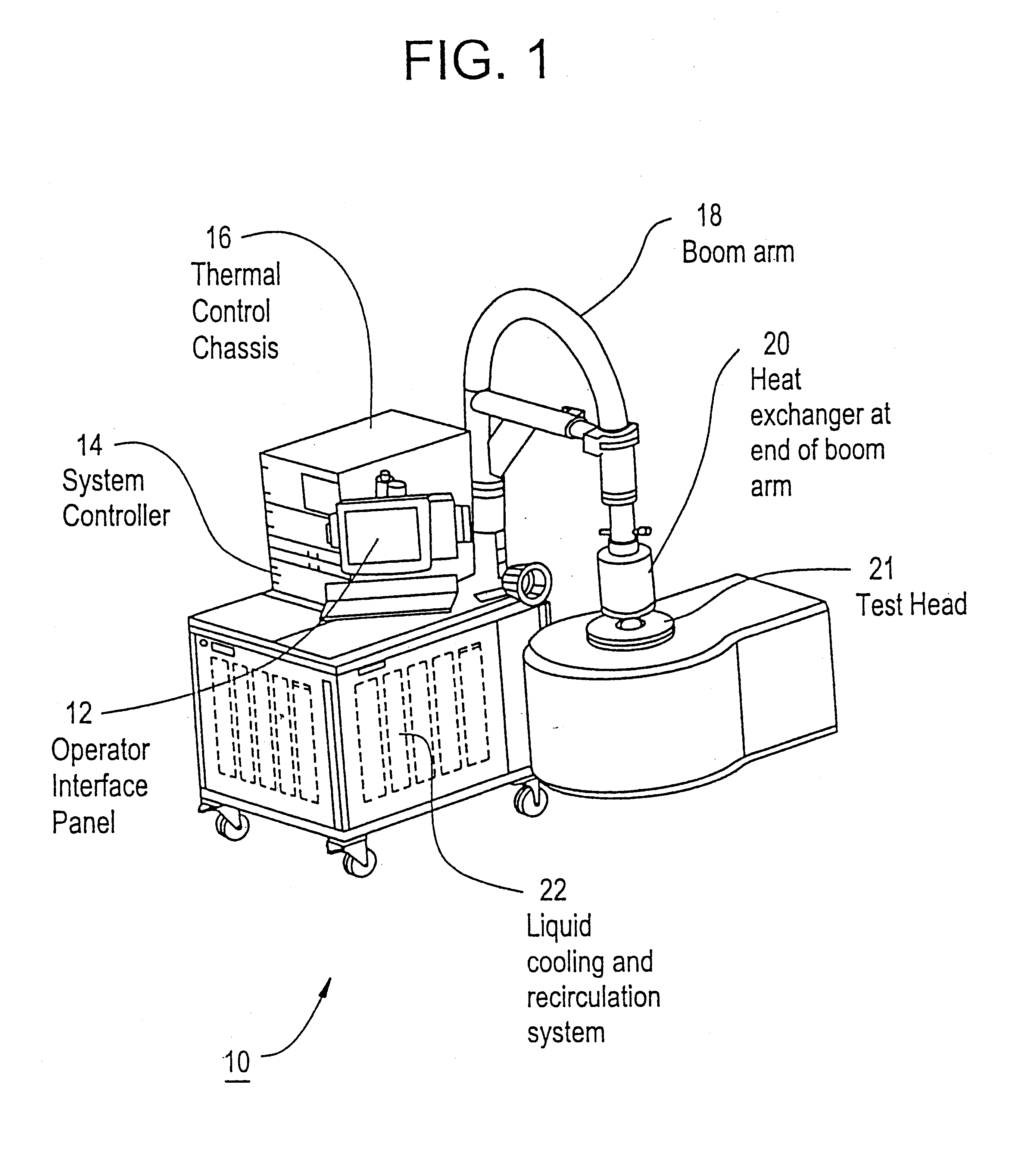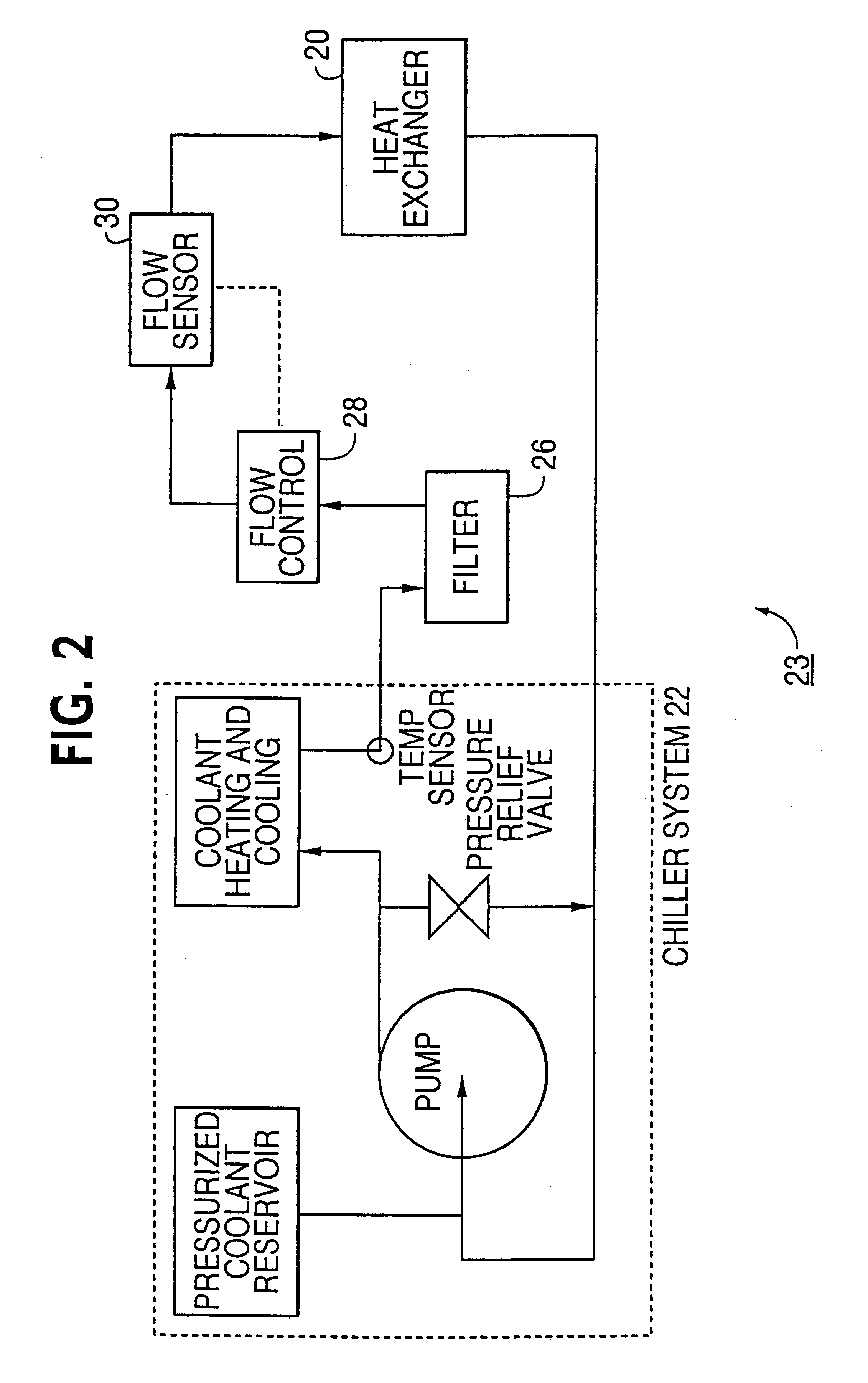Apparatus, method and system of liquid-based, wide range, fast response temperature control of electric devices
a technology of electric devices and liquid-based devices, applied in the field of temperature control systems, can solve the problems of increasing difficult to maintain the chip temperature near a constant set point, and difficult to adjust the temperature error between the desired and actual temperature, etc., to achieve the effect of small form factor and flexibility in chip situations, fast response and fast set point temperature chang
- Summary
- Abstract
- Description
- Claims
- Application Information
AI Technical Summary
Benefits of technology
Problems solved by technology
Method used
Image
Examples
examples
One present embodiment uses HFE7100 as the liquid coolant, operating in the temperature range of −40.degree. C. to +40.degree. C. The temperature difference between the coolant supply and the chip set point temperature ranges between 5.degree. C. and 160.degree. C. The high temperature is limited by long term reliability issues associated with rapid, large, repeated temperature variations and associated thermal stresses of the coolant loop and the heater / heat exchanger assembly. It is also limited by the maximum set point to average liquid temperature difference sustainable with the power rating of the heater power supply. It is also limited by the materials and processes used to manufacture the heater / heat exchanger assembly, such as the breakdown temperature of an epoxy, the melting point of a solder, or the boiling point of a coolant. The current system calls for a chip set point temperature range of −35.degree. C. to +125.degree. C. This would require at least an 85 degree C. De...
second embodiment
A second embodiment uses water or a water / glycol (antifreeze) or water / methanol mixture, operating in the temperature range of +10.degree. C. to +90.degree. C. The temperature difference between the liquid and the chip set point temperature can range between 5.degree. C. and 160.degree. C. The chip set point temperature ranges between +15.degree. C. to +170.degree. C.
Another embodiment has a chiller temperature range of −40 degrees C. to 50 degrees C. The set point temperature is specified at 0 degrees C. to 110 degrees C. It can use the heater for active control, to compensate for self-heating of the DUT, from 40 degrees C. to 10 degrees C. The performance of the active control will degrade as the set point temperature approaches the coolant temperature. The amount of the degradation depends on the package type and the power density, among other things. Degradation is displayed in an increased die temperature deviation.
4. Variations
A heat exchanger may have many other implementatio...
PUM
 Login to View More
Login to View More Abstract
Description
Claims
Application Information
 Login to View More
Login to View More - R&D
- Intellectual Property
- Life Sciences
- Materials
- Tech Scout
- Unparalleled Data Quality
- Higher Quality Content
- 60% Fewer Hallucinations
Browse by: Latest US Patents, China's latest patents, Technical Efficacy Thesaurus, Application Domain, Technology Topic, Popular Technical Reports.
© 2025 PatSnap. All rights reserved.Legal|Privacy policy|Modern Slavery Act Transparency Statement|Sitemap|About US| Contact US: help@patsnap.com



